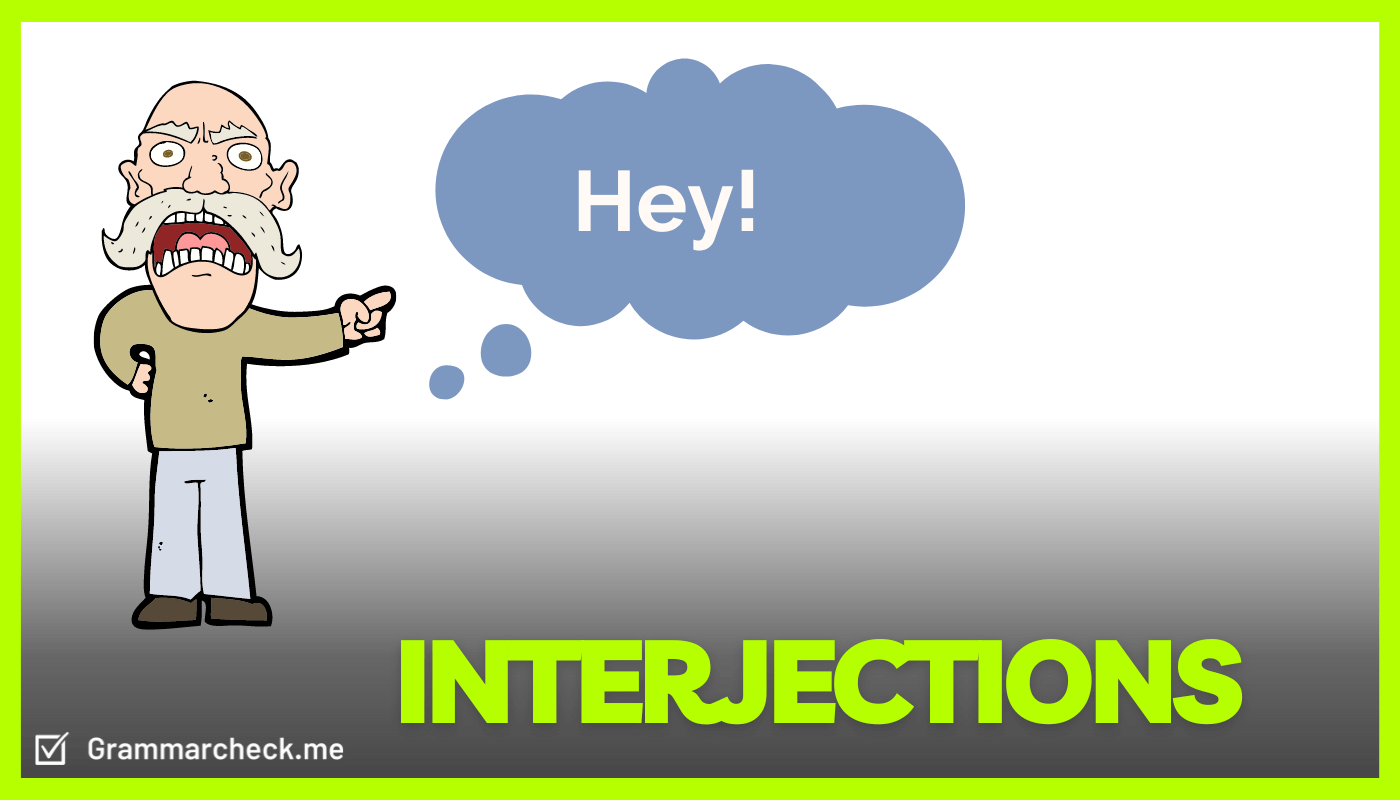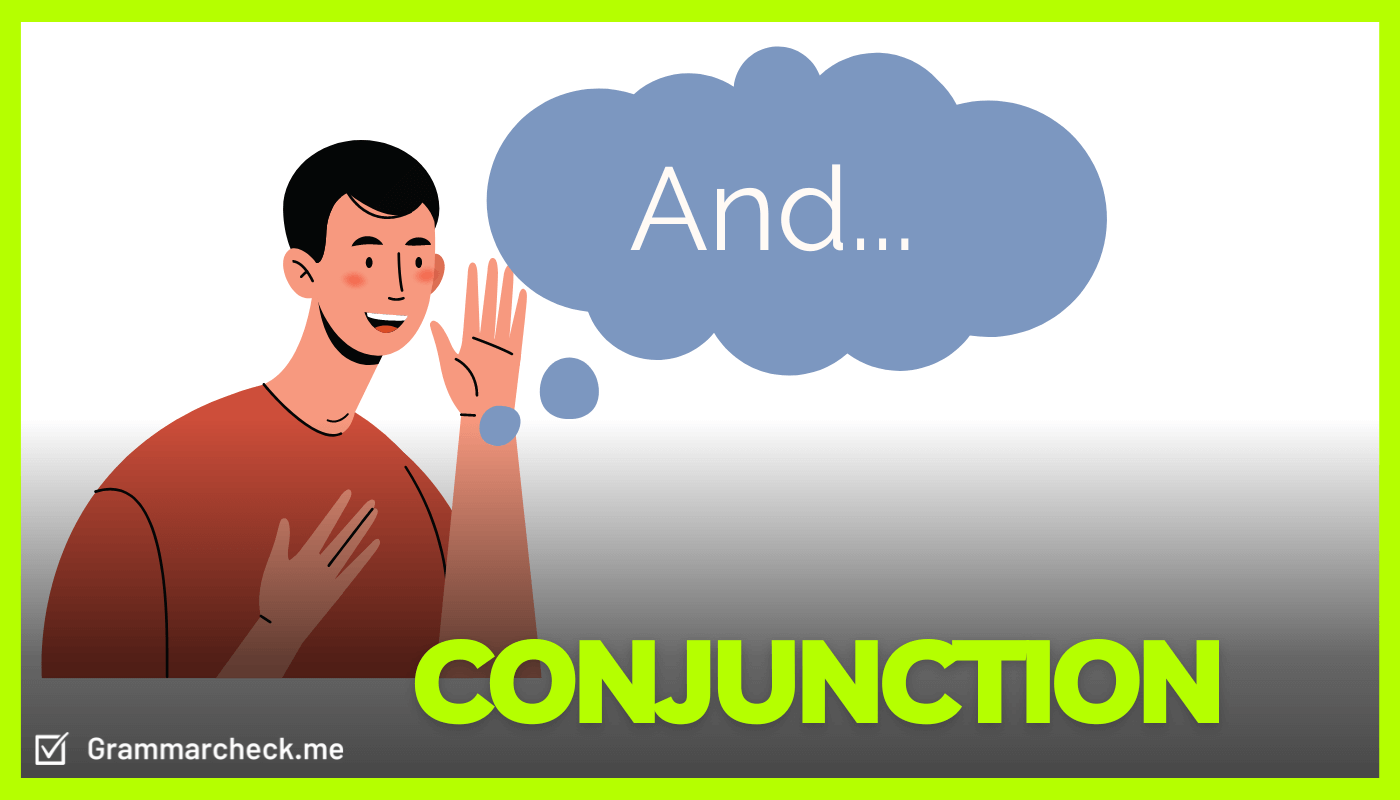Interjection and conjunction are two commonly confused words based on their phonetics. Settle this confusion in this article.
Interjection and conjunction are two words you’re bound to hear often and two words people often confuse when learning about English grammar. The confusion typically stems from the fact that the two words sound somewhat similar. In truth, however, these words have entirely different meanings and can greatly confuse your reader or listener when not used properly.
So, what is the difference between interjection and conjunction? Keep reading to find out and learn what’s the right way to use each word.
What Is an Interjection?

Let’s start by explaining what an interjection is. Understanding these grammar concepts are basic writing conventions that all writers should know!
An interjection expresses sudden emotion. The emotion expressed can be anything from joy to anger and surprise – as long as that emotion is sudden in the context.
Interjections are flexible and can be used in many different ways. In writing, interjections are usually positioned at the beginning of a sentence, but this isn’t always the case. They can also follow almost any part of a sentence, such as a verb or a noun.
Interjections have a similar use in speech; you most likely hear them in speech every day as they are a normal part of it. However, interjections in writing are usually considered informal, so you’ll usually find them in novels or other types of informal writing.
One thing to understand is that interjections are usually not complete sentences. Another common element is that an interjection often ends with an exclamation point to emphasize the abrupt nature of the remark; however, this isn’t always the case. Many people have mastered the different parts of speech, but interjections & conjunctions are just as important!
Words that are commonly used as interjections include:
- Hey!
- Oh!
- Wow!
- Yikes!
Examples of interjections
To demonstrate their use, here are some examples of interjections in sentences:
- Oh no! I think I lost my wallet!
- Yikes! That was a close one.
- Oh! I just remembered why I came into the kitchen.
- Wow! It’s really hot out today.
First Things First… What Is a Conjunction?

Simply put, a conjunction is a word that connects words, clauses, phrases, or sentences. Conjunctions are essential to speech, as they help create complex and thought-out sentences.
Conjunctions, just like the word everyone’s, are also vital when you’re trying to avoid the use of short sentences. While you should always avoid run-on sentences, you can run into a similar problem with the flow of your writing if you use too-short sentences. The solution to this is to use conjunctions.
There are several types of conjunctions, with the most commonly used ones being single-word conjunctions. For example, here is a list of some conjunctions you probably use every day:
- But
- And
- So
- Or
- Yet
If conjunctions and interjections are simple concepts for you, consider the Proofreading Academy Course to become a certified proofreader! You can make money using your English grammar skills!
Examples of conjunctions in a sentence
To illustrate their use, here are a few phrases using conjunctions:
- I met my new professor today, and she was very nice.
- I finished my homework, so I should be able to join you for the hockey game tonight.
- My mom said she’d be home at 5:00 pm, yet it’s already 6:00 pm, and she’s still not here.
To reiterate the earlier point that conjunctions connect two clauses in a sentence, here’s an example of two sentences using no conjunctions contrasted with the same two sentences joined by a conjunction:
- I wasn’t hungry. I had a small salad for lunch anyway.
- I wasn’t hungry, but I had a small salad for lunch anyway.
Both examples try to get the same point across, but one is much easier to understand. If you mastered these grammar rules, consider using Writers Work Freelance Platform to put your writing to the test!
The first example did not flow nor sound coherent. It was also challenging to see the connection between the two sentences and understand why one followed the other.
The simple addition of the word “but” in the second example made the meaning easier to understand, and the sentence flows much better.
Now that you know what a conjunction and interjection both are, let’s talk about what makes the two concepts different.
Interjection and Conjunction – The Difference
Knowing what an interjection and conjunction are, you might wonder how these two words are so commonly confused.
Interjection and conjunction generally have two completely different meanings and are used in different contexts. The main reason that the two are often confused is that they sound the same.
Download Our eBook To Learn How To Create Amazing Content 1x Faster!
That said, they do share some similarities. For starters, interjections and conjunctions give a sentence or phrase complete meaning. They are also most often just a single word, although both can also be compound words, such as the case of “oh no” and “long as.”
The key difference between conjunction and interjection is that conjunctions connect two words or two phrases, and interjections are used to express sudden emotions, usually in informal writing.
Moreover, conjunctions have a grammatical function, while interjections do not. Conjunctions are also usually placed in the middle of their sentence, while interjections are most often placed at the beginning, although there is flexibility for both.
Final Thoughts
To wrap up, interjection and conjunction may sound like similar words, but they serve entirely different purposes. It’s essential to understand the purpose of each one to use them properly.
The good news is that you use both concepts when writing or speaking American English every day. It’s just a matter of recognizing when you do! If you need some extra help with these grammar concepts, consider using our correct sentence online tool FREE of charge!

